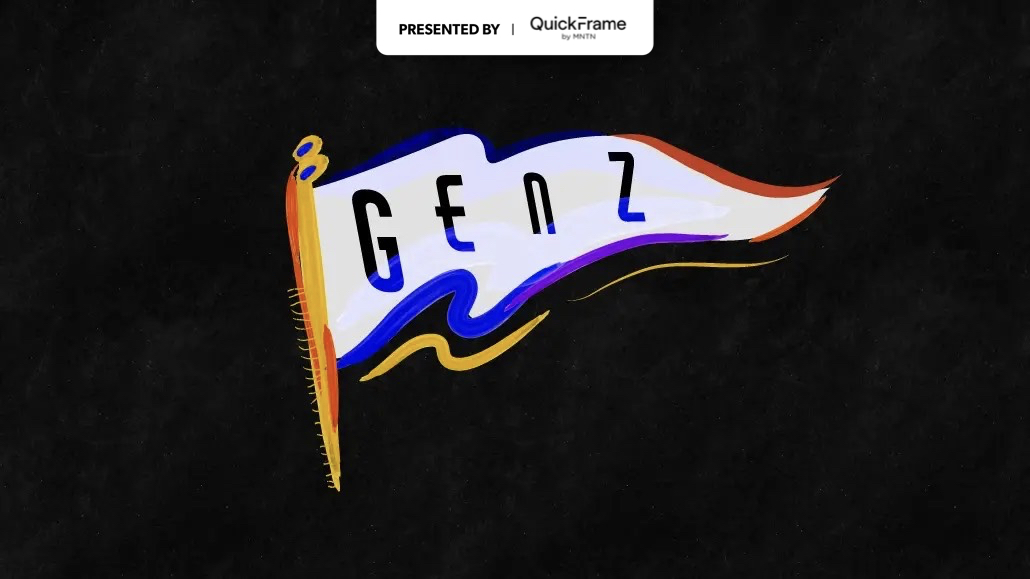Secure your place at the Digiday Media Buying Summit in Nashville, March 2-4
Beverage brands seek out the right fit with Gen Z-focused influencer marketing

Influencers are still a worthwhile investment for marketers looking to get the attention of Gen Z consumers with ads that don’t feel like ads. And up-and-coming beverage brands Poppi, Zoa Energy and Lemon Perfect are on board with the strategy, tapping influencers and short-form videos to experiment with how they can catch the attention of Gen Zers looking for better alternatives to regular drinks.
“Nowadays, you can’t just post this beautiful high gloss picture anymore,” said Allison Ellsworth, founder of gut health beverage maker Poppi. “People want that authentic and real communication from that content.”
To do just that, Poppi is partnering with influencers on social media to create short-form videos that promote the launch of its new grape flavor this month. Poppi has teamed with “Real Housewives of Salt Lake City” star Lisa Barlow, lifestyle influencer Julianna McIntosh, recipe creator Amali Kahaduwe and lifestyle influencer and track and field athlete Michaela Hedderman, and, at the same time, is using its own TikTok to show the behind-the-scenes process of rolling out the new flavor.
“So for us, we’re all about that top-of-funnel brand awareness and building that story slowly, and we’re not immediately hitting them in the face with, ‘Hey, purchase, purchase, purchase,'” said Ellsworth. “We’re using social media through the funnel and being able to bring more people into the Poppi family.”
Energy drink brand Zoa Energy invested heavily in user-generated content by enlisting the help of macro and micro social media influencers, according to Kevin Kruse, the brand’s director of e-commerce. The company decided which influencers were the right fit based on their audiences and passions, Kruse explained, adding that “influencers are all fueling something bigger within their respective communities.”
In the end, Zoa Energy determined the right mix of influencers included @happykelli on TikTok (with 8 million followers) and “So You Think You Can Dance” finalist and fitness influencer Alex Wong, also on TikTok (2 million followers). Although Zoa Energy has a Facebook page, the brand is focusing marketing efforts on Instagram and TikTok because Gen Z and younger millennials spend more time on those platforms. In addition, Zoa Energy is featuring these influencers in its digital out-of-home displays during XFL games this season.
For flavored lemon water brand Lemon Perfect, influencer marketing efforts are focused around genuine fans of the brand, and everyone the brand works with originally started as a fan of Lemon Perfect. Philadelphia Eagles quarterback Jalen Hurts, tennis player Sloane Stephens, college basketball player Jared McCain and San Antionio Spurs’ Dejounte Murray are among the brand’s most notable influencers.
“Whenever we announce a new partnership on our social accounts, we love leveraging the collaboration feature on social platforms like Instagram to showcase the announcement on both the brand and partner’s profile,” said Richa Anand, Lemon Perfect’s director of brand marketing. “This consistently lifts not only our engagement on that post, but our engagement on surrounding posts and our overall follower account.”
Lemon Perfect’s influencer marketing efforts follow its experimentation with OOH, which included billboards featuring the Eagles’ Hurts that were displayed in Philadelphia ahead of the Super Bowl. Anand said the effort increased brand awareness, and also significantly increased sales in the city. Lemon Perfect will continue using OOH in 2023.
It is unclear exactly how much of their marketing budgets these beverage brands are allocating to influencer efforts, as they all declined to share budget specifics. Anand did share that Lemon Perfect shifted marketing dollars to TikTok because Gen Z doesn’t use Facebook as much as previous generations. And Kruse said that social media spend makes up roughly 25% of Zoa Energy’s total budget, and digital display videos account for roughly 22%.
According to Sensory Tower data, Zoa Energy has seen an approximate 79% decrease in digital ad spend in 2023, compared with 2022. The majority of ads in 2023 have been served on Instagram, while most ads served in 2022 were found on Facebook.
All in all, the rise of social media platforms has made it easier for brands to connect with influencers, with Instagram being the most popular platform for influencer marketing campaigns, according to a survey conducted by market research platform Astute Analytica. Over 78% of marketers use Instagram for influencer campaigns, per Astute. In 2020, the average influencer marketing budget was $25,000 to $50,000 per campaign, according to the data, with some larger influencer campaigns exceeding $100,000.
Christian Brown, co-founder of influencer marketing network Glewee, explained that Gen Z consumers are smart enough to see through traditional marketing methods in today’s digital landscape, which encourages brands to focus on transparency rather than risk coming off as inauthentic.
“Gen Z consumers strive to find brands they can relate to, and typically, their first point of brand awareness and relation begins on social media, typically in short-form content on TikTok and trend-following feed posts on Instagram,” said Brown. “To drive this authentic feel, these brands are going right to the source and utilizing the power of Gen Z influencers and creators to voice their brand values, unique branding propositions and define themselves using the authority bias approach.”
More in Marketing

Future of Marketing Briefing: AI’s branding problem is why marketers keep it off the label
The reputational downside is clearer than the branding upside, which makes discretion the safer strategy.

While holdcos build ‘death stars of content,’ indie creative agencies take alternative routes
Indie agencies and the holding company sector were once bound together. The Super Bowl and WPP’s latest remodeling plans show they’re heading in different directions.

How Boll & Branch leverages AI for operational and creative tasks
Boll & Branch first and foremost uses AI to manage workflows across teams.








